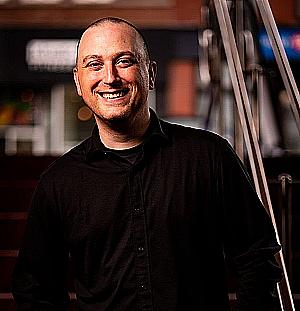Pte. James MacArthur - Veterans Affairs Canada | Deadpan + Genuine + Natural
Description
Vocal Characteristics
Language
EnglishVoice Age
Middle Aged (35-54)Accents
North American (Canadian - Maritimes) North American (Canadian-General) North American (General)Transcript
Note: Transcripts are generated using speech recognition software and may contain errors.
My name is James McArthur. I was named James after my father, but my parents called me Gordon. I was born in Port Hill, Prince Edward Island, the youngest of three Children. My parents were farmers, like just about everyone else in the time Valley area. I was working in a cheese factory when the Great War struck in 1914 I was 27 years old. There was no infantry unit on Prince Edward Island at the time, but so many men were volunteering for the war that a new battalion was authorized by the federal government. It was the 105th Canadian Infantry Battalion. This was our regimental badge. More than 1500 of us tried to sign up. Over 1200 were accepted on June 8 1916 C Company of the 105th boarded the train in summer side. A large crowd had gathered. A marching band played O Canada and God save the King. As the train pulled out of the station, we saying our regimental song song I would sing again many times throughout my life, I was surrounded by other young Islanders. We were going to Europe and to war When we arrived in England, things were different than we expected. We wanted to go to the front as a unit, the mighty 105th from Prince Edward Island. But that never happened. Instead, we were split up to reinforce other Canadian units. Eventually we were all broken up. I found myself in the 13th Battalion in France. I was a stretcher bearer, and soon I was in the thick of the war. In good weather. Two of us could carry a wounded man on a stretcher. But as the weather worsened and we fought, the infernal mod of the trenches took us for men to recover a wounded man. Getting each one back was a struggle, a fight against the Earth as well as the enemy. My first battle was a Jimmy Rich. On April 9th, 1917 a sergeant right in front of me got hit by a machine gun bullet. And as he fell, he nearly knocked me down. He was killed instantly. By his side were two dead Germans online crosswise over the other. It was my first view of dead Germans and was pretty gruesome because one of the bodies was headless. I particularly remember one German popping out of his trench with his hands up, pleading for mercy as I approached, giving him quite a scare with my bayonet. But he had no gun, so I motioned for him to go to the back lines where they were hurting the prisoners and I pushed on way were a sorry sight for filth and vermin. After four days on the 13th when we got back to our cave under the ridge, I took off my boots. My feet swelled so much I couldn't get them back on. I went once without being able to take off my boots for 40 days. Like many of the men, I had trench foot. But there was nothing we could do about it. You couldn't fight a war in bare feet. I fought in the Battle of Hill 70 Impassioned. At one point we were on the road for three days without food. Our generals kept promising food at each stop. But each time we pull into a village and pile out of the truck, there would be nothing. When we got to a wrasse, it was empty of people and no food. We've had enough. Someone grabbed a paving stone through it through the window, the grocers, which was all locked up and quiet. It was a scramble to get something to eat. Officers tried to stop us, but we were too hungry. There was no hope for order. We ended up facing a court martial for plundering, and we were given field punishment. We had to do all of the sanitary work for the unit for a while and other unattractive jobs. On the first day of the battle of a me en I was wounded. A bullet hit me in the left thigh and I was removed from the front and from France, I recovered in a military hospital in England. I was released from the hospital in September, and just two months later the war was over. We arrived back in Charlottetown just before Christmas. I received the victory medal, the British War Medal and the military Medal for bravery in the field. Prince Edward, who would later be king, presented a metal to me and two other members of the 105th in Charlotte. I went back to farming. I got married. We had two daughters. I never learned to drive a car. I bought a car and try driving once but acquitted in the ditch and never bothered with it After I prefer to walk. Despite the abuse, my feet took in the trenches where I take Fanny, my horse. I would still sing the old 105th Battalion anthem from time to time. The mood hit me when I was sitting by the fire. I still remember so many faces. Young men I knew and others I didn't. They came back to me every day for the rest of my life. I wanted to make it to 100 and I almost did. I died at 98 years of age in 1986 a message from the government of Canada

 Top Talent
Top Talent